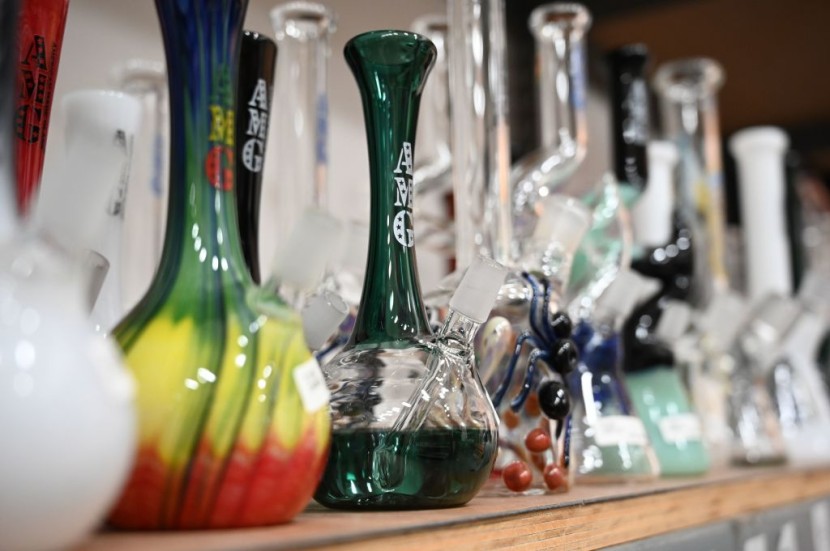
A North Dakota woman faces up to 30 years in prison after she was stopped in Minnesota last month and police found a bong with traces of drugs, a glass jar containing a "crystal substance," and other paraphernalia, according to a report.
Jessica Beske, a 43-year-old resident of Fargo, was pulled over May 8 for speeding in Polk County, Minnesota, and deputies who searched her car after reporting smelling marijuana found the bong and the other items, the Minnesota Reformer reported.
The residue on the paraphernalia tested positive for methamphetamine, along with the eight ounces of water in the bong and the substance in the glass jar.
Beske told the outlet that she didn't have any drugs with her, only the paraphernalia.
She was charged with first-degree felony possession, which means that Beske could be sentenced to 30 years in prison and hit with a $1 million fine.
Beske told the Guardian that the charges came as a shock to her.
"All I could see was [the possibility of] 30 to 40 years. And I couldn't speak, I couldn't breathe," she said.
"They didn't even discuss it at all. They just pushed it through. Nobody's even thinking about whose lives are affected by this," Beske said of the legislative session.
At first she thought her arrest was a "mistake," but discovered after doing some research about the bong water exception in the law and how the legislature passed it.
The Minnesota Reformer said for charging purposes the eight ounces of water in the bong is considered the same as eight ounces of methamphetamine, more than the 50-gram threshold for the felony charge.
"The legislative intent behind the weight-based thresholds is to approximate whether a person is an end user or a dealer," Kurtis Hanna, a longtime Minnesota drug reform advocate, told the publication.
"The fact that some county prosecutors are subverting that clear intent and are charging end users as though they are wholesalers, ruining their lives in the process, is shameful," Hanna said.
Beske said the charges against her are wrong. "It's against common sense," she said. "It's against everybody's common sense."
The Minnesota legislature last year decriminalized drug paraphernalia, even if it contained traces of drugs.
But bong water was part of a law stemming from a 2009 court ruling that determined that water in a pipe "could be considered a 'drug mixture' under the legal definition, and hence could count toward substance weights used to determine offense severity," the report said.
Scott Buhler, the assistant Polk County attorney prosecuting Beske, said he couldn't comment on pending cases when asked about the taking cases involving bong water to court, saying the criminal complaint "speaks for itself."
He said the office "simply enforces the laws of this state as written."
Beske admits that she has a substance abuse problem and says the possibility of being locked up for 30 years makes her feel hopeless.
"It's just gonna make my life worse and make me want to use drugs more," she said. "That's why people use drugs mostly, is to cope."
She told the Guardian in the interview that she hopes the law will be changed.
"It's just so wrong that I just have to hold hope that this is going to change the law, hopefully," Beske said. "I don't want anybody else to have to have to go through this."
© 2025 HNGN, All rights reserved. Do not reproduce without permission.









